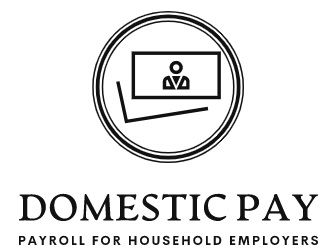
Domestic Workers Rights
All domestic workers who work for an Employer for 24 hours or more, per month, must be registered with UIF through the Department of Labour. Employees who are classified as domestic workers include housekeepers, gardeners, nannies, and domestic drivers and in South Africa, are governed by Sectoral determination 7 of minimum wages for domestic workers.
In April 2003, domestic workers were included in the UIF act and were required to be registered with the Department of Labour.
2% of an employee’s earnings must be paid to the Department at the end of each month by the Employer. This 2% comprises 1% is paid by the employer and 1% which is deducted from the employee’s monthly salary.
Employers must register themselves with the Department of Labour, as Employers. Once they have received their UIF reference number from the Department of Labour, the Employee/s must then be linked to the UIF reference number. The Employer retains the UIF reference number for the period during which they employ any domestic worker. There is 1 UIF reference number for the Employer, who can link many employees to the number.
Pay Solutions will register the Employer with the Department of Labour and ensure that they receive their UIF reference number and link the Employee to the UIF reference number using the prescribed documents required by the Department of Labour: The UI19 and the Salary Schedule document.
In addition, Pay Solutions will supply the employer with an Employment contract which needs to be signed by both domestic workers and employers. We will issue payslips for each pay period whether it be monthly, fortnightly, or weekly. We will deduct the necessary deductions including UIF and pay this over to the necessary authorities.
In terms of the notice as published in the Government Gazette and signed by Employment and Labour Minister, T.W Nxesi the new rate will be applicable on 03 February 2022.
As in previous years, the adjustment provides exceptions for several worker groups, including Farmworkers are entitled to a minimum wage of R23.19 per hour.
Domestic workers are entitled to a minimum wage of R23.19 per hour.
Workers employed on an expanded public works programme are entitled to a minimum wage of R12.75 per hour.
Workers who have concluded learnership agreements contemplated in section 17 of the Skills Development Act, 1998 (Act No 97 of 1998), are entitled to allowances contained in schedule 2.
The new amendment to the NMW is in line with the Basic Conditions of Employment Act, which allows for an annual review.
The actual areas can be found at www.labour.gov.za.
Domestic workers are allowed to work a maximum of 45 ordinary hours per week
– Maximum of 9 hours per day if working for 5 days a week
– Maximum of 8 hours per day if working more than 5 days a week
Overtime is payable when domestic workers work longer than the ordinary hours prescribed per day or per week. Overtime is calculated at 1.5 times the hourly rate of pay. Sunday overtime is calculated at 2.0 times the hourly rate of pay. If domestic workers work on a public holiday, then they are entitled to an additional day’s pay.
Any payment can be in cash, by cheque or by direct deposit into an account designated by an employee. The payment must be given at the workplace, during working hours and in a sealed envelope, which becomes the property of the employee. A payslip must be given at all times.
The employer must keep the payslips for three years.
Details on pay slip to include:
-
the employer’s name and address
-
the domestic workers name and occupation
-
the period in respect of which payment is made
-
the domestic workers wage rate and overtime rate
-
the number of ordinary hours worked by domestic workers during that period
-
the number of overtime hours worked by domestic workers during that period
-
the number of hours worked by domestic workers on a public holiday or on a Sunday
-
the domestic worker's full wage
-
details of any other pay arising out of the domestic workers employment
-
details of any deductions made
-
the actual amount paid to domestic workers
The following deductions may be made from the Domestic workers salary:
-
Medical insurance
-
Savings
-
Pension fund
-
Trade union subscription
-
Garnishee
-
Rentals
-
Loan or advance (not more than 10% of total wage)
-
Accommodation – provide that:
-
The amount is not more than 10% of the total wage AND the room is weatherproof and in good condition
-
The room has at least one window and door that can be locked
-
The room is fitted with a toilet, a bath/shower or has access to another bathroom
-
An amount greater than the actual remuneration received
-
Breakages (crockery, electrical appliances)
-
Damages (ironing)
-
Meals provided during working time
-
Clothing
-
Work equipment
The employer must issue the domestic worker with written particulars of employment, containing the following information:
-
The full name and address of the employer
-
The name and occupation of the domestic worker, or a brief description of the work for which he/she is employed
-
The place of work, and where he/she is required or permitted to work
-
Date of employment
-
The domestic worker’s ordinary hours of work and days of work
-
The domestic worker’s wage or rate and method of payment
-
The rate of pay for overtime work
-
Any other cash payments he/she is entitled to
-
Any payment in kind he/she is entitled to and the value of payment in kind
-
How frequently wages will be paid
-
Any deductions to be made from wages
-
The leave he/she is entitled to
-
The period of notice required to terminate employment, or if employment is for a specified period, the date when employment is to terminate
Both parties must agree and sign the particulars. The particulars should be reviewed annually.
-
Ordinary working hours = a maximum of 45 hours per week
-
Maximum nine hours per day when working five days
-
Maximum eight hours per day when working for more than five days
-
Overtime not more than three hours in any day
-
Not more than 15 hours of overtime per week (5 days x 3 hours per day)
-
Standby from 20:00 – 06:00 – payment R20-00 per shift
-
Meal interval of one hour if the employee worked continuously for more than five hours
-
Rest periods
The several types of leave an employee is entitled to
Annual Leave
Three weeks per year or 1 day for 17 days worked. For those who do not work 5 days per week or 8 hours a day, leave can be calculated at 1 hour for 17 hours worked.
Sick Leave
A leave Cycle is 36 months in duration (3 years). The number of days of sick leave equals the number of days worked during a six-week period.
Maternity Leave
Four consecutive months of unpaid leave. Employers may opt to pay a portion of the salary to the Employee, while on leave. Employees are entitled to claim a % of their loss of earnings, from UIF.
Family Responsibility Leave
Five days per year.
All employees are entitled to twenty-one (21) consecutive days of leave per annum (that is Monday to Sunday)
5-Day Workers are entitled to fifteen (15) working days per annum.
6-Day Workers are entitled to eighteen (18) working days per annum.
Should an employee only work 1 day a week, then the calculation is as follows:
1 x by 52 (52 weeks in the year) = 52 days divide this by 17 because they are entitled to 1 day for every 17 days worked and we get 3.06 days per annum to leave entitlement.
This means if the domestic worker works on a Wednesday, she is entitled to 3 Wednesdays off (therefore three weeks per annum)
A contract of employment may be terminated only on notice of not less than one week if the domestic worker has been employed for six weeks or less and can be terminated by either the Employee or the Employer.
Notice of four weeks is required if the domestic worker has been employed for six months or more.
Live-in domestic workers are allowed to stay on the premises for a month (notice period) or may agree to pay for the accommodation.
An employer who must dismiss an employee due to a change in his/her economic, technological, or structural set-up, called operational requirement in the determination is responsible for severance pay to the employee.
Severance pay is payable only if there was no alternative employment. At least one week’s pay for every completed year of service
On termination of employment, an employee is entitled to a certificate of service.
Employees may claim unemployment UIF from the Department of Labour. As the Employer, you are required to provide your Employee with an updated UI19 form and Salary Schedule form.
If you need assistance with registering or terminating your domestic worker with SARS, or UIF payments or have any contractual queries regarding your domestic worker
